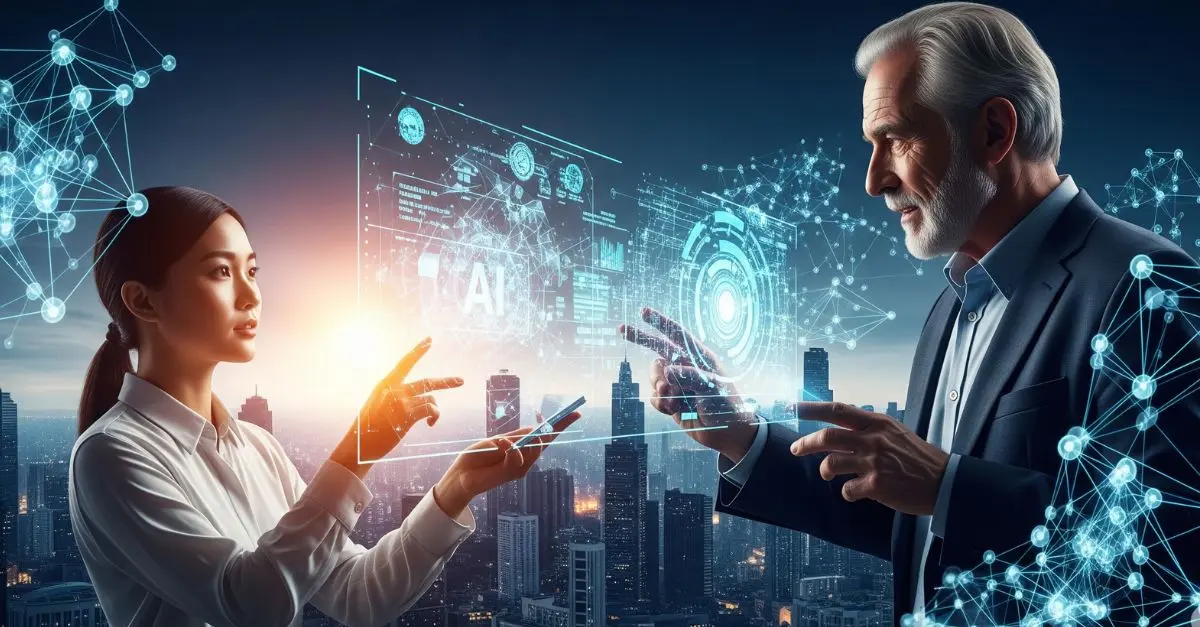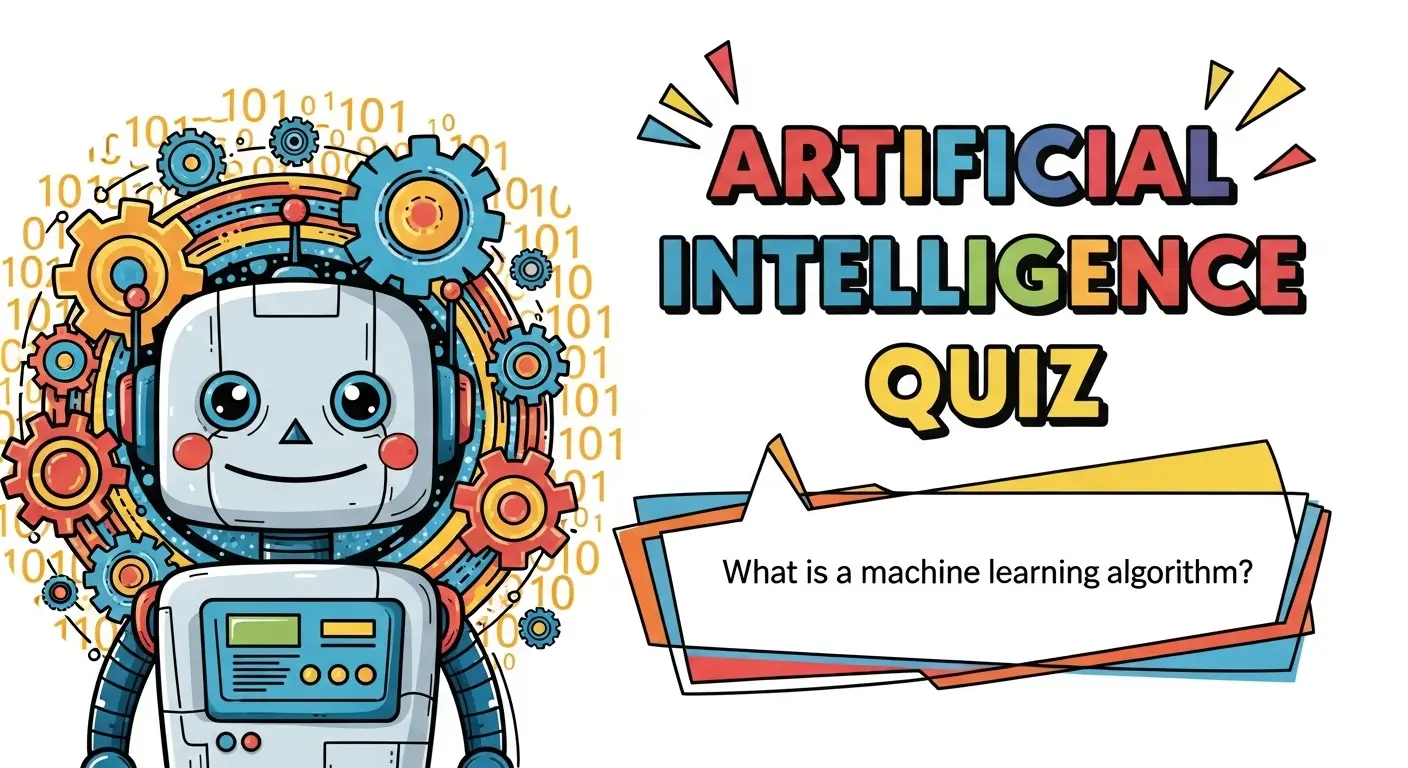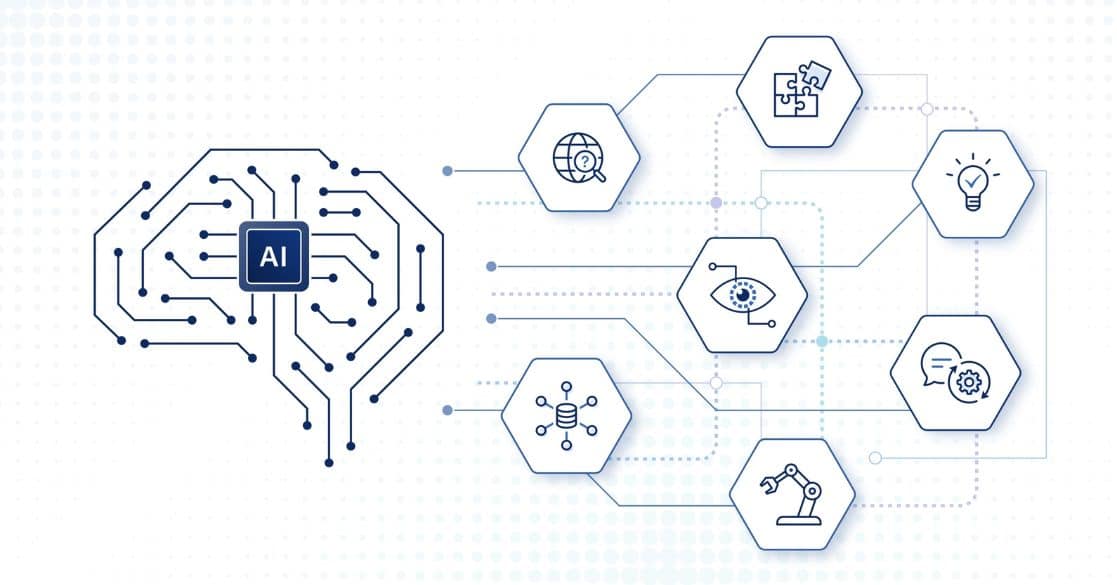Consider a world where machines not only keep records but also think, learn, and adapt; this is no longer fiction, but the emerging reality of artificial intelligence. Whether applied to voice assistants, autonomous vehicles, or many other use cases, AI-based technology is transforming work, life, and connectivity.
Artificial intelligence (AI) can be described as intelligent systems that resemble human intelligence to make decisions, solve problems, and learn. However, within a couple of decades, AI went on to become a critical instrument in almost every industry. With smarter algorithms and larger datasets, the future of AI is set to change all four quarters of the society in ways never seen before.
AI for Everyone: Learn AI Essentials
Learn how AI for Everyone makes artificial intelligence accessible to all. Learn how AI can enhance your life, work, and creativity, regardless of technical skills.
This article discusses how the AI revolution will change the way we do business and healthcare, think ethically and educate. With this digital frontier, it is necessary we familiarize ourselves with the possibilities and limitations of AI to create a more brilliant, less biased future.
Learn AI and Machine Learning from the University of Texas at Austin
Build your Career in AI. Master Python, Deep Learning, NLP, Computer Vision, and Generative AI like ChatGPT in this AI course by the McCombs School of Business at The University of Texas at Austin.
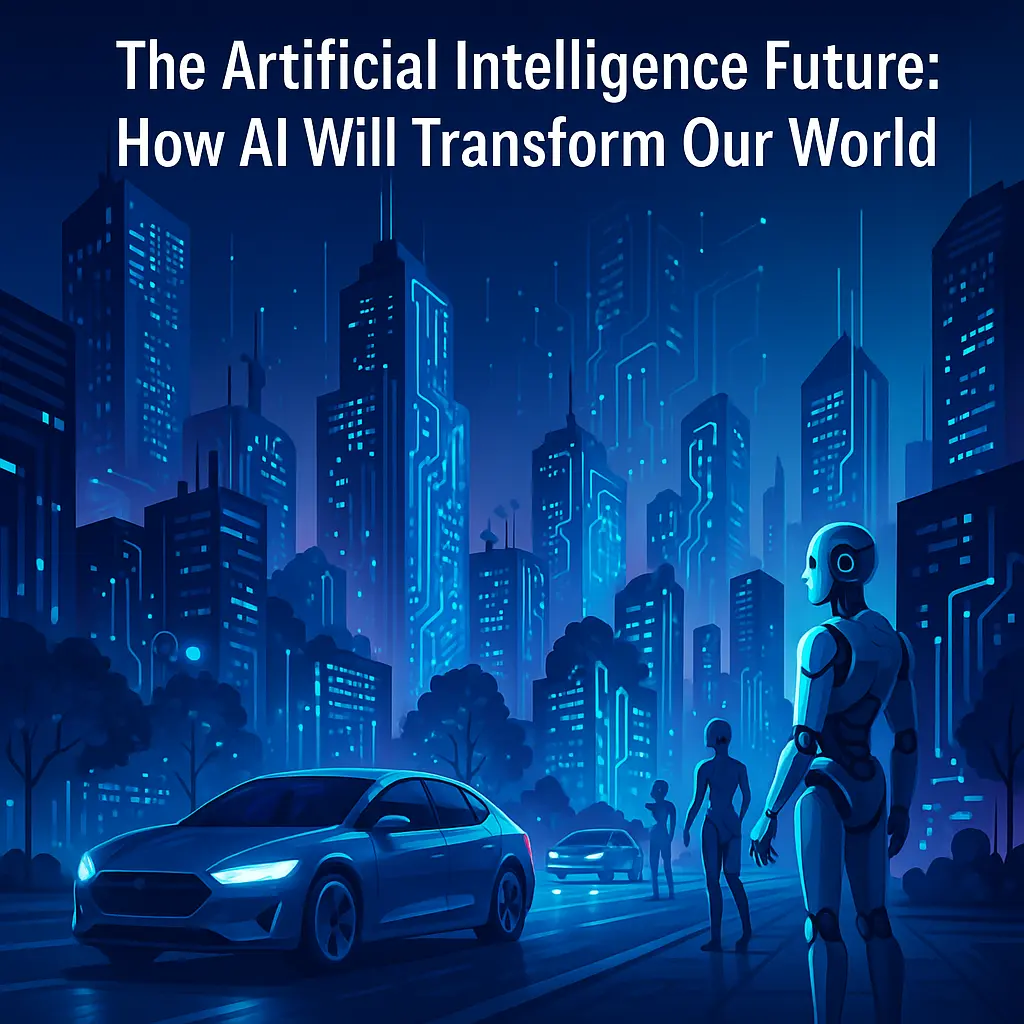
A Brief History and Current State of AI
The history of Artificial Intelligence goes back to the 1950s when Alan Turing and John McCarthy began their work. AI developments were once hampered by the processing capabilities but momentum was created with the 2000s and advanced algorithms and big data.
Early narrow AIs tackled things such as spam detection but current-day generative AI, including ChatGPT, has the ability to generate content, code, and art.
Explore how generative AI is transforming industries across domains.
Whether that is voice assistants, self-driving cars, or ads, AI has become an inseparable part of our everyday life, and it has changed the way we live and work significantly. The boundary between machine and human intelligence is getting thinner and thinner.
AI in Industry and the Economy
Developments of AI are transformative and disruptive to the industry and economy.
- Automation and Labor Markets:
- AI-powered robots and software can perform routine tasks faster and more accurately than humans.
- This increases efficiency but also leads to job displacement in certain sectors.
- Manufacturing:
- AI enables predictive maintenance and performance monitoring.
- It supports real-time quality assurance and streamlines supply chain operations.
- Logistics:
- Intelligent routing systems optimize delivery paths.
- Warehouse automation reduces costs and improves efficiency.
- Finance:
- AI is used for fraud detection, algorithmic trading, and risk analysis.
- It enables personalized banking and financial services.
- AI is redefining customer understanding in American banking
- Agriculture:
- AI helps in crop monitoring, predictive yield analysis, and soil health assessment.
- Autonomous farming machines increase productivity and reduce manual labor.
AI Startups Driving Innovation
The emergence of AI startups has led to a rapid upsurge of innovation. Using AI to become more efficient in diagnostics, fintech firms creating more innovative credit scoring systems or health tech organizations doing the same, startups are disrupting the traditional business models and finding new frontiers. Learn how to master artificial intelligence and become part of this wave of innovation.
AI Transformation in Legacy Industries
The transformation is also happening to the legacy industries. Those same firms that have incorporated AI into their operations are realizing competitive advantages, whether it is through streamlining their workflows or making crucial decisions based on data.
Just as the world economy was on the verge of a new industrial revolution, with machines replacing people, it is now on the verge of a new industrial revolution; this time powered by intelligent systems as opposed to mechanical ones.
AI is already reshaping industries like manufacturing, logistics, and finance through predictive analytics, automation, and intelligent decision-making.
You can explore practical artificial intelligence projects that demonstrate how these technologies are applied in real-world business contexts.
AI in Everyday Life
The adoption of artificial intelligence in daily life is getting more seamless. Siri, Alexa, and other smart assistants can perform their duties in terms of scheduling, reminders, and answering in real-time. We get personalized suggestions of what to look at, purchase, and read; meanwhile, predictive algorithms forecast our needs in apps, shopping, and navigation.
In Healthcare:
AI enhances diagnostics by analyzing medical images, predicts patient outcomes, and accelerates drug discovery. Virtual health assistants support mental health and chronic condition management, offering around-the-clock care and insights.
In Education:
AI-driven adaptive learning systems are utilized to deliver personalized lessons tailored to each student's individual needs, thereby helping to close learning gaps. There are AI tutoring tools that give immediate responses, practice questions, and even mimic individualized classes.
AI is redefining convenience, accuracy, and personalization in our day-to-day activities. The smarter and more anticipatory these systems become, the more data they collect, drawing us into a hyper-networked, AI-enhanced existence.
Ethical Challenges and Risks
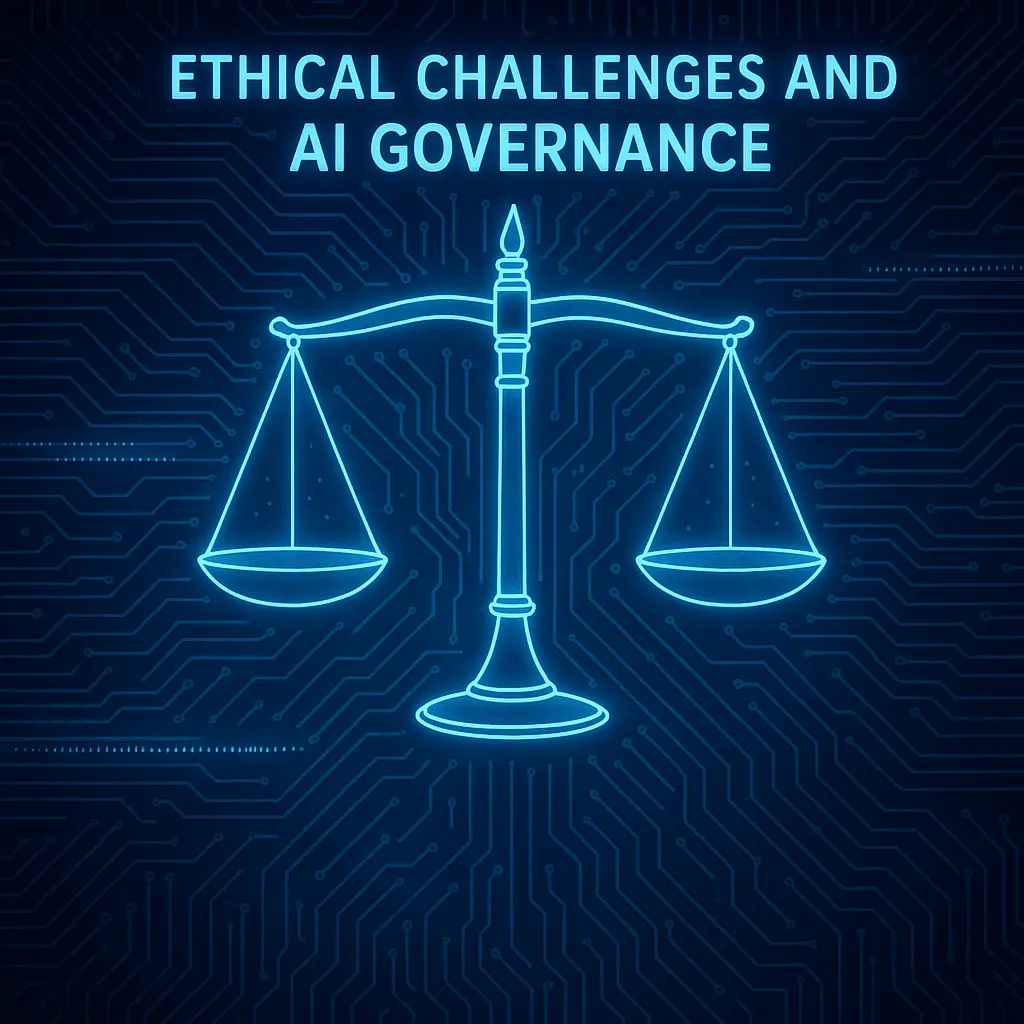
Although AI presents huge potential, it also poses significant ethical questions and dangers. One issue of primary focus is algorithmic bias, which includes the risk of systematically reinforcing discrimination in recruitment, policing, or lending, all of which are supported by AI systems trained on biased datasets.
To achieve fairness in AI, the realization of both transparency in model design and accountability in results is needed.
Another issue on the high agenda is data privacy. AI primarily operates based on personal information; therefore, without the necessary security mechanisms, the user's data may be misused or mishandled.
Another complexity is the lack of uniformity of privacy procedures across borders, which makes it difficult to protect the rights of individuals.
AI automation has already caused job displacement in low-skill industries and is endangering to increase social inequality. Although new occupations connected with AI are emerging, there is an increasing need for a massive scaling of the reskilling program to avoid disrupting the economy.
More hazardous threats are the autonomous weapons and the abuse of AI in the spread of misinformation, including deepfakes. These are not only threats to individuals, but also democratic systems and global stability.
Furthermore, there are also regulatory loopholes that indicate opportunities to implement AI without proper control in sectors such as surveillance and finance.
To ensure a safe and fair future, governments, corporations, and scientists must collaborate to develop ethical frameworks for AI, regulate it effectively, and prioritize human-centric design. It is just as essential to maneuver these dangers as it is to create the technology itself. Take a free course on the ethical applications of AI to better understand these issues.
The Future: What’s Next for AI?
As we look ahead, the future of AI raises both excitement and uncertainty. A key area of speculation is Artificial General Intelligence (AGI), AI that matches or exceeds human cognitive abilities. While some experts believe AGI could emerge within decades, others view it as a distant, possibly unreachable goal. Whether real or hype, the debate underscores the need for strong ethical and governance frameworks.
In the near term, human-AI collaboration holds the most potential. Rather than replacing humans, AI is poised to augment our abilities, helping doctors analyze data more efficiently, enabling creatives to produce content faster, and supporting researchers with complex modeling and simulations. This co-evolution of human and machine intelligence could redefine productivity and innovation across every field.
Beyond individual industries, AI can help tackle global challenges. From optimizing energy grids to predicting climate trends, advancing disease research, and improving food distribution, AI could play a vital role in solving problems that have long eluded traditional approaches.
But this future depends on responsible innovation. As AI continues to evolve, collaboration between technologists, policymakers, and the public will be essential to ensure that its benefits are widely shared and its risks minimized. The next era of AI will be shaped not just by algorithms, but by the values we choose to embed in them.
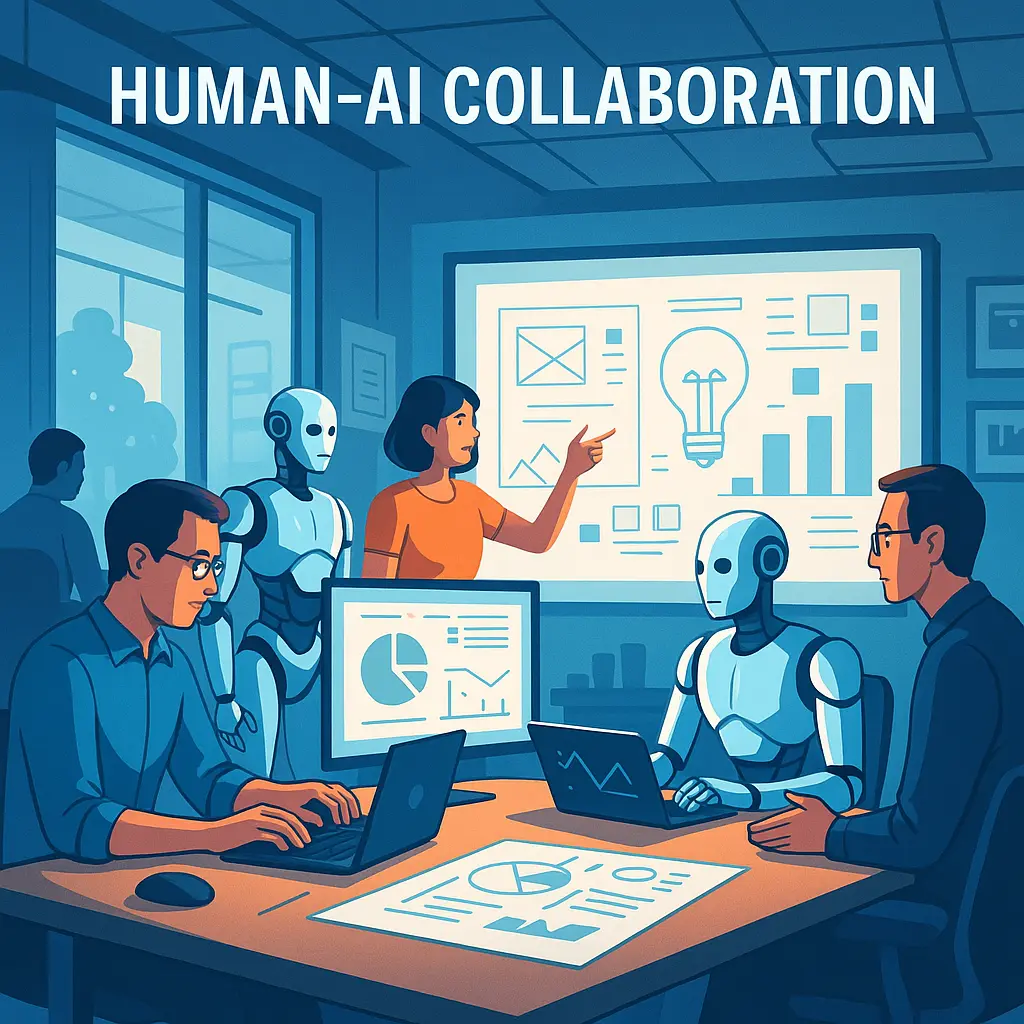
Artificial intelligence is not just a technological breakthrough; it’s a defining force of the 21st century. From its early roots to the rise of generative AI, the technology has quickly moved from laboratories into every aspect of daily life, transforming industries, economies, and personal experiences.
As we’ve explored, AI’s potential is vast, from improving healthcare and education to reshaping how we work and solve global problems. Yet, it also brings significant ethical and societal challenges that demand careful attention.
The path forward isn’t just about what AI can do, but what it should do. As we step into this new era, the choices we make today about regulation, transparency, and inclusivity will determine whether AI becomes a force for empowerment or division.
The future of AI is still being written. Let it be a story of innovation with conscience, where technology enhances humanity, rather than replaces it.
The future of AI is still being written. Let it be a story of innovation with conscience, where technology enhances humanity, rather than replaces it.
